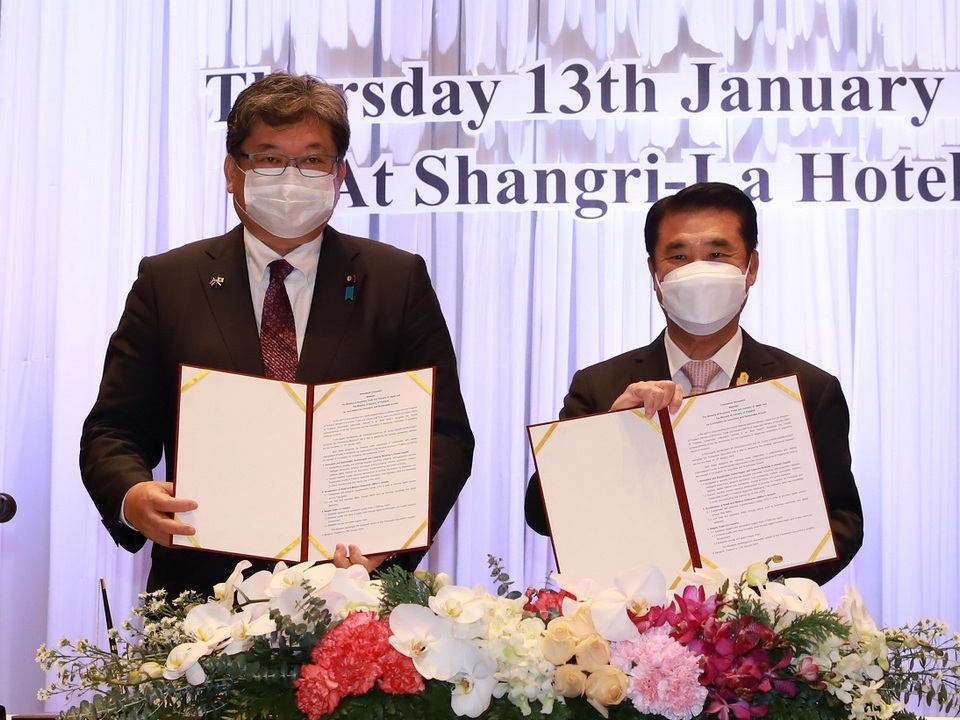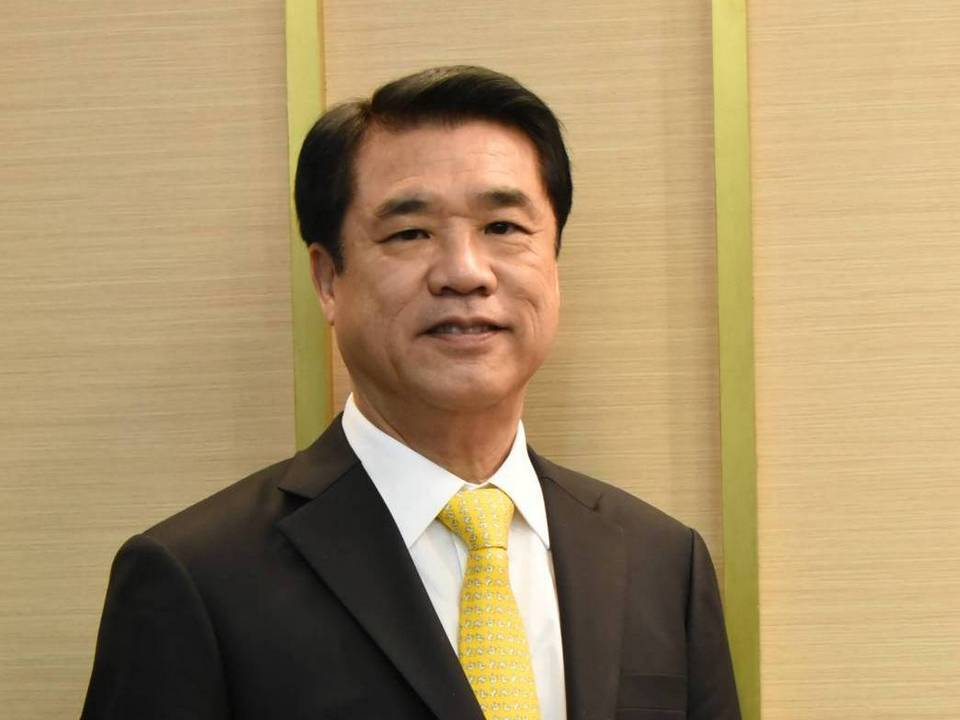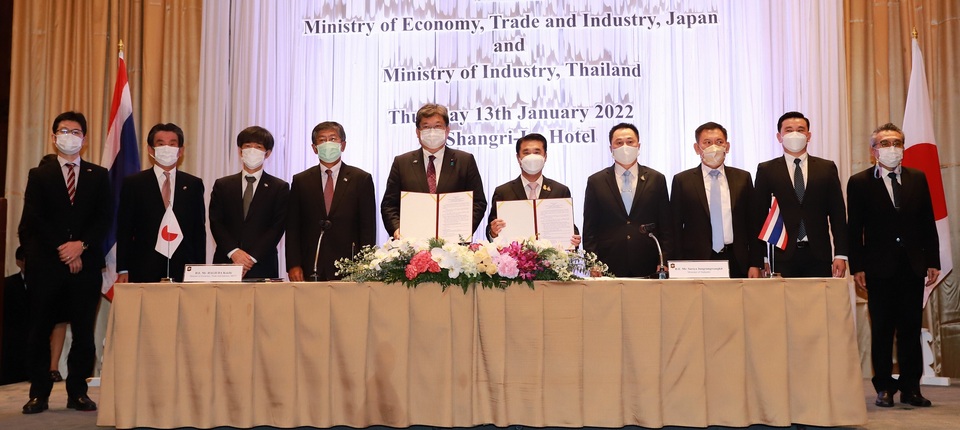
Bangkok, January 13, 2022 – The Ministry of Industry (MOI) and the Ministry of Economy, Trade and Industry (METI) of Japan are working closely on strategies to revitalize both countries’ remarkable potentials for economic and industrial development. This is to provide opportunities from the ASIA-Japan Investing for the Future Initiative (AJIF) under Thailand’s Bio-Circular-Green Economy (BCG Model) by jointly developing innovation and technology, human capital capacity, digital technology in SMEs, and supply chain, as well as coping with economic and social changes. Additionally, continues to push its economic expansion in Thailand, investing about 70 billion baht in various projects.
The COVID-19 epidemic continues to affect economic activities and industrial sectors in many countries, according to Mr. Suriya Juangroongruangkit, Minister of Industry. As a result, to reinforce a constantly changing setting, a method of rejuvenation is critical. During his visit to Thailand, the MOI discussed ways to restore the economy and industry with Mr. Hagiuda Koichi, Minister of METI, Japan, to find ways to alleviate existing changes and volatility, as well as developing the BCG Model in collaboration with the AJIF by defining a Framework Document on Co-Creation for Innovative and Sustainable Growth.
The framework focuses on innovation and technology, human capital capacity, digital technology in SMEs, and supply chain development with the goal of fostering Japanese investment in Thailand, building a regional connection, and exchanging outstanding potential of both countries to jointly create opportunities in various dimensions.

Mr. Suriya also stated that there are three areas of this certain cooperation, which are:
(1) Innovative and Sustainable Technologies and Capacity Building in Human Capital, focusing on developing and promoting targeted industries, including next-generation vehicles, intelligent electronics, advance agriculture, food processing, robotics, automation, aviation, logistics, digital, medical hub, bioindustry, circular economy, and green economy, as well as supporting human resource development to promote Co-creation for Innovative and Sustainable Growth in Thailand, especially developing Thai engineers’ skills and knowledge in smart manufacturing and making use of their ability.
(2) Acceleration of Small and Medium Enterprise (SMEs)’s Growth, focusing on promoting digital solution among Thai SMEs by collaborating with Industrial Transformation Center (ITC), as well as linking Thai and Japanese SMEs through efforts such as business matchings and digital platforms.
(3) Supply Chain Co-creation, focusing on establishing resilient and competitive supply chain in Mekong region, enhancing quality and value of supply chain through digital transformation and human resource development, and building circular and green supply chain.
“Cooperation with competent countries is a critical strategy for dealing with the global economic crisis. Such countries can help us achieve our goals by combining our varied strengths in a timely manner. Through the BCG Model, Japan, as a long-time ally of Thailand, intends to bring innovation and technology that it has developed to build capacity for Thailand’s selected industries. They also intend to increase the potential of human resources, both in labor and a group of young people interested in technology, including specialist Japanese SMEs, in order to adapt to the changing global setting.”
Currently, the MOI and the METI, Japan, are working together on various initiatives, including: (1) Establishment of a Comprehensive End-of-Life Vehicles (ELVs) Management System in Thailand. Because car scrap disposal in Thailand is fraught with difficulties, collaborating with the Industrial Estate Authority of Thailand would reduce environmental impact while also supporting the government’s BCG policy. (2) Smart Monosukuri, Lean Automation System Integrator (LASI), and Lean IoT Plant Management and Execution (LIPE). The aforementioned projects aim to build personnel potential in order to upgrade the industrial sector to SI (System Integrator) status and to aid the transition to a smart factory by leveraging AI IoT automation as a mechanism to boost productivity.
Mr. Suriya stated that, despite a crisis in 2021 that harmed Thailand’s confidence, Japan remains an essential economic partner. According to a BOI study, Japan is the largest source of investment value in foreign projects approved for investment promotion, accounting for 19% of Thailand’s total foreign investment. Large projects (1,000 million baht or more) account for the majority of the investment value, including the production of petrochemical products (PET Resin) worth 3,062 million baht, the production of yarn or fabric with special properties worth 2,597 million baht, and research and development activities (Production using microbial cells, plant cells, and cells) worth 1,990 million baht. The bearings for autos manufacturing industry are also valued 1,680 million baht. Japan has several projects that have been submitted for promotion in the first nine months of 2021. The development is the focus of 125 projects for a total of 67,817 million baht.

 |
 |
 |





